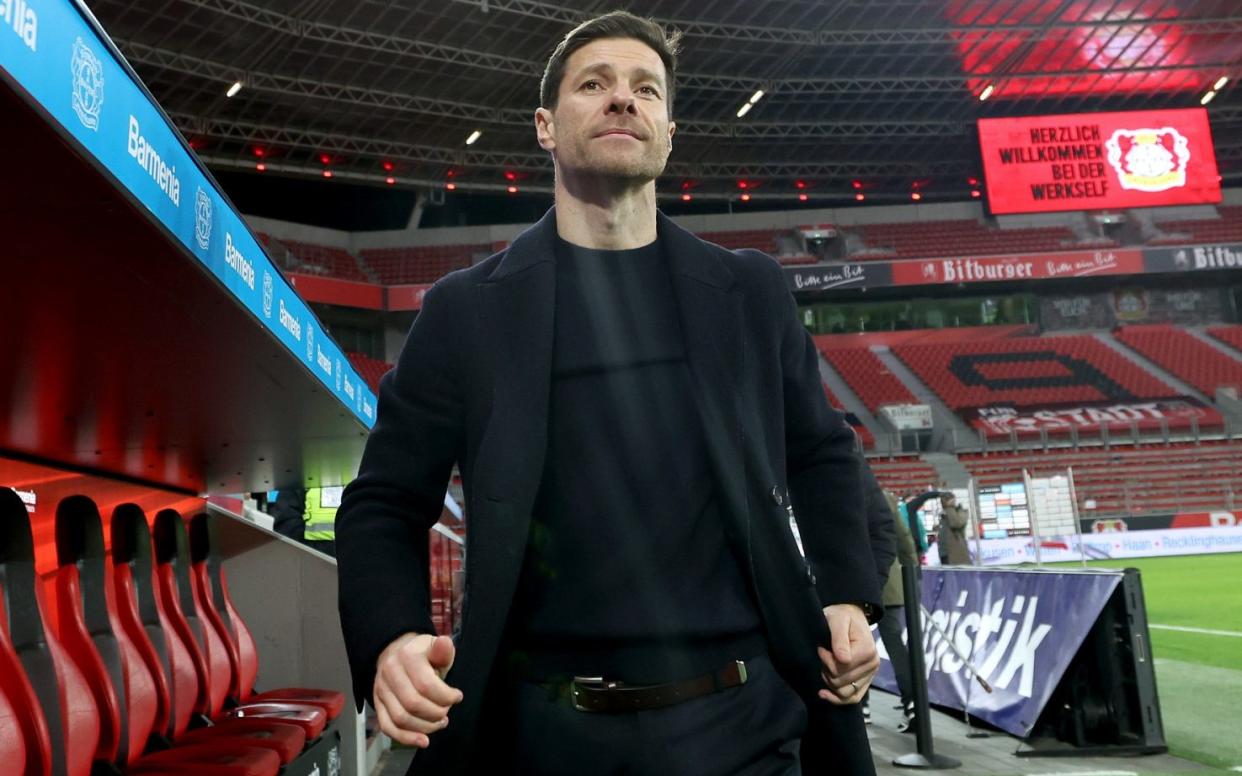Liverpool are a slick machine – but the wrong manager and sporting director will set them back years

The wrong decision can set a club back years, and occasions like those Liverpool have again today at Wembley, with a trophy at stake, might once again become as rare as they have been for other slumbering giants of the English game who have not been easily roused.
The sparkling endgame of the Jurgen Klopp era continues at the Carabao Cup final, whose side are favourites in spite of an injury crisis, and begin the weekend top of the Premier League. Many of the club’s Fenway Sports Group (FSG) US ownership may well be in London to see Klopp potentially add a fifth major honour to his Liverpool record. Behind the scenes no one needs telling that decision time is looming for the club.
It is not just a case of the manager, where Xabi Alonso remains the outstanding candidate ahead of Rúben Amorim and Julian Nagelsmann. It is also a case of the structure that supports the chosen man. In the first decade of their ownership, FSG got it right after a few misadventures. Mike Gordon, a hedge fund investor who turned his mind to football, and is one of FSG’s key shareholders, became a major figure in the rebuild of the club’s staff and recruitment. The question is: can they do it again?

The critical appointments of manager and sporting director await, and everything else flows from that. The FSG track record suggests that it should, by now, be well capable although not everything the US investors have tried has worked – the less said about Project Big Picture and the Super League the better. FSG has also entertained the idea of selling the club and yet finds itself still very much the owner. In terms of building a club and all that goes with it – much expertise has been accrued.
Perhaps that is why, having stepped back from Liverpool responsibilities in November 2022 when suggestions of a sale surged again, Gordon has since returned to what many say is a key role. Between now and the summer FSG has to shape the club anew to support the incoming manager.
It does have the benefit of all that accumulated experience that sets them ahead, for now, of Ineos at Manchester United and the Eghbali-Boehly show at Chelsea. It is a question of how they seek to use it. As for the new sporting director, Gordon has been back to Michael Edwards, another key figure from the previous decade, to offer him a return – so far declined. Frederic Massara, once of AC Milan, is available which makes him a good option, as is Tiago Pinto, formerly of Roma. Florent Ghisolfi looks a long-shot given his current employer, Nice, are an Ineos club.
The importance of the decision is hardly lost on FSG, a cautious, process-driven creature that likes to take its time. Thus far the transformation has been pretty spectacular yet it only gets harder. The great United team of the 1990s was rebuilt for the 2000s by the same man, Sir Alex Ferguson, because English football was a simpler thing then. Now, the market for off-pitch specialists is just as fierce as that for the managers.
Notable this month that FSG has been reunited with one of its most famous employees in its US sports network, the Major League Baseball executive, Theo Epstein. He was general manager for the FSG franchise Boston Red Sox when it finally won the World Series after an 86-year wait in 2004 and then again in 2007. He later moved to the Chicago Cubs and ended a 71-year wait for the same. He returns to FSG as a part-owner and the statement in his arrival named “EPL football” as one of the enterprises over which he will preside.
Pivotal period for Premier League elite
Back in 2012, FSG had tried unsuccessfully to appoint Klopp before it settled on Brendan Rodgers. As Rodgers’s time went into decline the club’s then director of research Ian Graham built a model to measure managerial performance against where bookmakers had priced potential league finishes. There were many other elements to the process and at the end, the standout three were Klopp, Carlo Ancelotti and Eddie Howe. Klopp was comfortably ahead. More experienced than Howe, and much less the beneficiary of big spending than Ancelotti.
Crucially, Klopp was available in 2015, and the research Graham had done demonstrated that his final Bundesliga season, in which Borussia Dortmund had bombed, was an anomaly. Sure enough they bounced back five places to second next time under Thomas Tuchel. Of all the major Liverpool figures in the past decade there is no doubt it was Klopp who was the most important. He elevated a very well-run club to become something else. The research, eliminating whatever small doubts might have lingered, was vindicated.
With all this in mind FSG will have watched with interest Sir Jim Ratcliffe’s interview series from London this week on the future of United under Ineos. Ratcliffe conspicuously failed to back Erik ten Hag and reworked for the current era Ferguson’s famous line about knocking Liverpool off their perch, as if it had been said upon his appointment in 1986. It was uttered by Ferguson in 2002 when he was safely ahead. He was far too shrewd to lead with that in an era when United were, as now, perennial underachievers in the league.
For all that, Ratcliffe did seem to pick up on a mood in English football that, once again, the game is afoot. Ineos has been aggressive in moving for executive targets immediately. Pep Guardiola and Txiki Begiristain will not be at Manchester City indefinitely. Over at Anfield they have big appointments to make too, and they do so from a strong position. That said, as United have proved over the past 10 years, it is not hard to toss away a winning hand.
